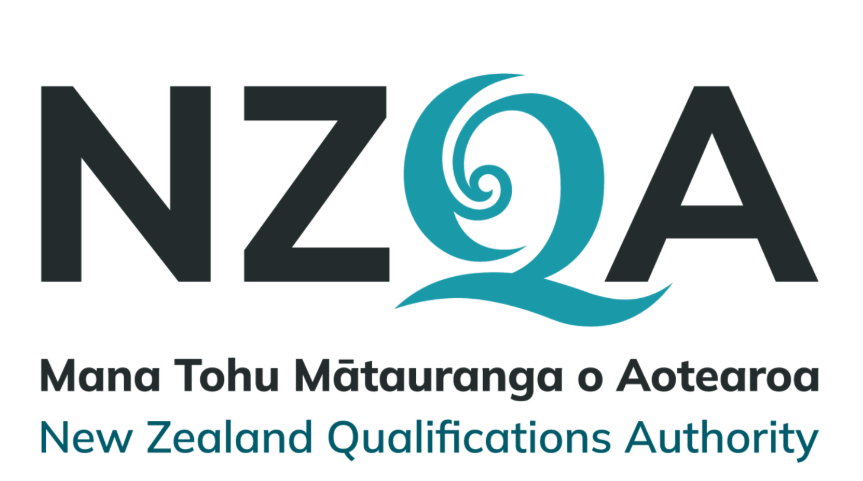
How NZQA moved their national exams online and created a platform for innovation in assessment whilst maintaining their Māori traditions
Case Study
New Zealand Qualifications Authority
Introduction
Every year, around 160,000 secondary school students in New Zealand enter the National Certificate of Educational Achievement (NCEA), delivered by the New Zealand Qualifications Authority (NZQA). The majority of these students complete their qualifications with examinations.
In 2015, New Zealand Qualifications Authority (NZQA) embarked on a ‘digital assessment transformation journey’ to modernise the NCEA exams and to create a platform for innovation in assessment over time.
In 2019, approximately 14,400 students from 197 schools completed digital NCEA exams in 14 subjects. Numbers of students taking online exams have continued to increase. In 2023, 62,516 students completed their end‑of‑year examination assessments digitally, a significant increase (39.4%) from 44,854 students in 2022.
The ‘digital first’ approach to assessment for the 2024 external Level 1 achievement standards resulted in another significant increase in participation. In November 2024, over 116,500 students completed NCEA exams digitally within 4 weeks, when over 70 subjects were successfully delivered, of which 14 were native language exams; this is a record number of native exams for NZQA, who see this as critical in maintaining the cultural relevance of their Māori traditions.
How did NZQA modernise their exams whilst maintaining cultural traditions?
NCEA is available in English and Te Reo Māori, catering for all students moving to the next stage in their education or employment. The exams were designed by nearly 500 specialists in the teaching workforce and student work is currently assessed by around 5,000 markers. NZQA saw that paper-based examinations were not taking advantage of the innovative teaching and learning approaches of the 21st century and that end‑of‑year exams were forcing students to be ready at the same point in time, irrespective of their individual learning journey.
To reflect the digital world that students live and learn in, NZQA embarked on a ‘digital assessment transformation journey’ to modernise the NCEA exams, creating a platform for innovation in assessment over time.
NZQA’s reasons for transitioning to digital assessment:
- To align assessment with the way students use and will continue to use digital devices every day
- To improve educational outcomes through the use of data and insights into how students respond to questions
- To improve the equity of NCEA outcomes for Māori and Pacific students through innovation in assessment, coupled with better use of data about their experience
- To embed more resilience into the examination systems and processes by reducing reliance on paper distribution

Key Challenges
Challenges that NZQA faced in realising their digital assessment vision included:
- Supporting schools and students to “opt in” when ready, rather than relying on a mandated requirement to participate in digital examinations. Students can still choose which exam format to sit
- Handling the significant media, political and public scrutiny, especially when NZQA, schools and the suppliers were learning how to deliver effectively into the varied technical environment device types in schools
- Managing the complexities of implementing an e‑assessment system in two official languages (English and Te Reo Māori)
- Ensuring that the digital examinations were properly designed so that the student sitting them had an equitable and engaging experience
The solution
“A user-centric approach: working closely with schools and students to co-create solutions”
NZQA completed multiple trials and pilots between 2015 and 2018 to gain better insight into how to transition to digital assessment, test their processes, enable schools to assess their capacity for digital examinations, and provide students with an opportunity to experience online exams. Schools, students and exam centre managers were engaged in the design process, ensuring that exams evolved alongside an increasingly digital classroom experience.
Feedback from the trials and pilots showed that NZQA was on the right path
of surveyed students preferred digital exams over paper
of surveyed students found their digital exam experience a positive one
According to NZQA student experience surveys that have been run since 2018, students are very positive about digital exams, with 95% of survey respondents preferring a digital exam over paper and 97% reporting that they found their digital exam experience a positive one.
Also, psychometric and statistical analysis of exam results* showed no significant difference in achievement between students completing assessments online and on paper.
Based on the very positive student feedback and the findings of statistical analyses of exam results, NZQA decided to move ahead with the development of a long-term platform for NCEA Online.
Supporting teachers, assessors and learners for better outcomes
In 2023, over 12,393 students from 175 schools participated in the final round of digital practice examinations for Level 1 English, Te Reo Māori and Te Reo Rangatira. This provided schools and students with an opportunity to familiarise themselves with the digital assessment platform.
NZQA plans to continue to offer the sector opportunities for students to practise assessment in a digital environment, such as through examples of past external examinations and online familiarisation activities.
The same support is available for teachers and assessors. In 2024, a new Assessor Practice Tool was launched, following a 12‑week pilot in 2023. The tool enables teachers and assessors to practise their marking on a sample of student work for a particular standard. Teachers and assessors can then see the appropriate grade with detailed commentary from a panel of moderators.

Reducing the barriers for disadvantaged learners
Digital technologies provide opportunities for new types of support and services that can significantly reduce barriers for disadvantaged learners.
Polly (a text‑to‑speech tool available through RM’s assessment platform) was available for all students to use in the Literacy and Numeracy | Te Reo Matatini me te Pāngarau NCEA co-requisite assessments. Polly enables equitable access to the writing and numeracy assessments for students with disabilities and learning support needs.
NZQA launched their Disability Digital Action Plan in September 2024. The plan has 4 key outcome statements:
- disabled learners experience barrier‑free external and internal NCEA assessments
- disabled learners experience barrier‑free tertiary education
- NZQA's products and services meet disabled customers’ needs
- NZQA is a disability confident employer
In addition to functionality benefits, digital external assessment can also lead to greater efficiency and enhanced quality assurance processes.
Reducing NZQA’s carbon footprint
In 2023/24, NZQA had a 4.7% decrease in its total CO2 emissions (2022/23: decrease of 14% restated) compared to the restated emissions of the 2021 base year (total emission to 1,005.46 tCO2e, previously 822.37 tCO2e). This decrease can be primarily attributed to category 4 - emissions from printing and distribution, where assessments have progressively transitioned to being online.
A strategic partnership to deliver the digital assessment vision for NCEA Online
After a robust procurement process, NZQA entered into a strategic partnership with RM in 2018. The partnership involved building and configuring digital assessment services using RM Assessor3, RM’s e‑marking platform, as part of their staged approach to digitise NCEA exams. NZQA also chose RM Assessment Master, an online assessment software solution, to allow them to deliver flexible assessments from any location across multiple delivery methods.
RM Assessment Master is securely delivered from cloud infrastructure in Australia and is also being used by other government entities, such as the SACE Board of South Australia, to develop and deliver digital assessments. This has created opportunities for NZQA, SACE and RM to collaborate and design an online assessment system that reflects the evolving way students learn.
Two thirds of NCEA exams delivered digitally in the first two years of the partnership
The partnership with RM allowed NZQA to offer and mark about a third of their exams online in 2019. Approximately 14,400 students from 197 schools completed digital NCEA exams in 14 subjects.
In November 2024, over 116,500 students completed NCEA exams digitally within 4 weeks, when over 70 subjects were successfully delivered, of which 14 were native language exams; this is a record number of native exams for NZQA, who see this as critical in maintaining the cultural relevance of their Māori traditions. The highest student number was 25,300, recorded for English Level 1.
A student experience evaluation of NCEA online carried out by NZQA in 2019 found that 97% of those surveyed continued to strongly enjoy the digital exam experience and the psychometric and statistical analysis for 2019 aligned with that from 2018.
NZQA’s plan is to digitise as many NCEA exams as possible, and more online exams will be available beyond 2024.
The opportunity for students to sit NCEA exams online has been described by the New Zealand Education Minister as “a step forward to deliver a more modern and resilient education system”.
“NZQA has been working with RM for 7 years, and in that time, RM has proven to be a crucial and trusted partner with whom we’ve been able to accelerate our transition to digital assessment - providing expert local support, consultancy and guidance to leverage every opportunity to further progress our strategic priorities. Our digital first approach means external assessments can be modified, leading to an enhanced student experience and more equitable access.”
Jann Marshall, Deputy Chief Executive, NZQA
The future
NZQA is looking to gradually replace paper-based assessments with digital assessments by expanding the range of subjects delivered online and by introducing exams that are developed specifically for digital platforms, such as mathematics, science and music. There is no set deadline for removing traditional NCEA assessments and digital exams will be offered progressively as more schools adopt digital teaching and learning.
The current programme of research, innovation and enhancements supports the work to do more than digitise today’s way of examining, and that is the key to delivering value to students, and a credible and reliable qualification to support entry to higher education and employment.
RM is working with innovative assessment organisations around the world.
Interested in finding out more?
Contact us for a conversation